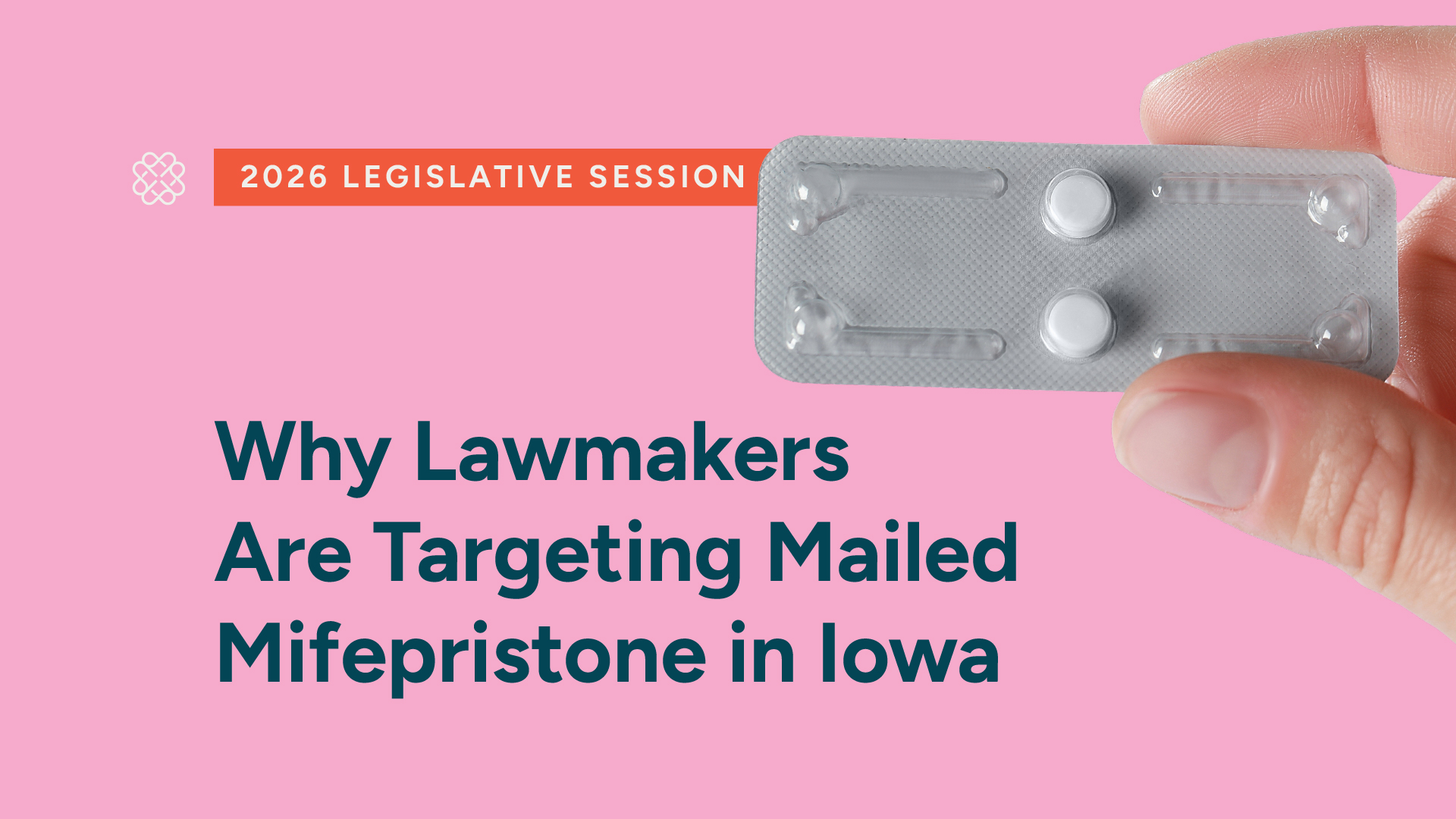
The conversation around abortion and reproductive healthcare often centers on morality or politics. But here’s something we can all agree on: Iowa’s economy matters. And the numbers are in, restricting reproductive healthcare isn’t just hurting patients, it’s hurting our bottom line.

Healthcare restrictions are driving up costs for everyone
As restrictions on abortion and reproductive care increase, so does the cost of healthcare. When people are denied access to services like contraception or abortion, they’re more likely to experience medical complications, require emergency care, and need long-term government assistance.
In fact, women who are denied an abortion are:
- Less likely to be employed full time six months later
- More likely to live in poverty and rely on food assistance, cash aid, or Medicaid for up to five years
- More likely to have increased debt and lower credit scores
Source: GAO report on economic impact of abortion restrictions (2024)
This isn’t theoretical, it’s already happening in states with strict bans, including Iowa. When people can’t access healthcare, it becomes a financial crisis, for them and for the taxpayers who fund safety net programs.
Restrictions are driving talent and tax revenue out of Iowa
People want to live in communities where they feel safe, respected, and able to make their own healthcare decisions. When those freedoms disappear, so do workers.
- 66% of young professionals say they won’t move to states with abortion bans Guttmacher Institute, 2023
- States with bans are experiencing slower job growth, especially in healthcare and education
- Iowa is already facing a healthcare provider shortage, and OB/GYNs are leaving the state due to increased restrictions and criminalization fears National Partnership Report, 2023
If we want Iowa to thrive, we need policies that attract, not repel, talent. Denying healthcare doesn’t just violate rights, it pushes away the very people and professionals who could help our communities grow.
When people can plan their families, everyone wins
Access to reproductive care, including abortion, has long-term benefits for individuals, families, and the economy.
People who can make decisions about when (or whether) to have children are more likely to:
- Finish their education
- Enter and stay in the workforce
- Achieve financial stability
- Contribute to local and state tax revenue
The Turnaway Study shows that women denied abortions face more hardship, more debt, and greater reliance on public assistance than those who are able to access care.
Let’s be real: every Iowan contributes to government assistance programs. Would you rather your tax dollars go toward:
- Preventative care that keeps families healthy and working?
- Or years of emergency costs, debt relief, and food insecurity that could have been prevented?
Healthcare choices today shape Iowa’s economy tomorrow
This isn’t just a healthcare issue. It’s a workforce issue. It’s an economic development issue. It’s about whether Iowa is a place where families, businesses, and communities can grow.
If we want strong schools, full clinics, thriving main streets, and safe neighborhoods—we need to invest in people. That means protecting their ability to make private medical decisions, including abortion.
Because when healthcare is denied, it’s not just patients who pay. It’s all of us.
For more reproductive rights information and updates on Iowa healthcare access, visit our resources page or sign up for our newsletter.
Empower change.
Sign up for our newsletter and stay informed on reproductive healthcare issues in Iowa.




